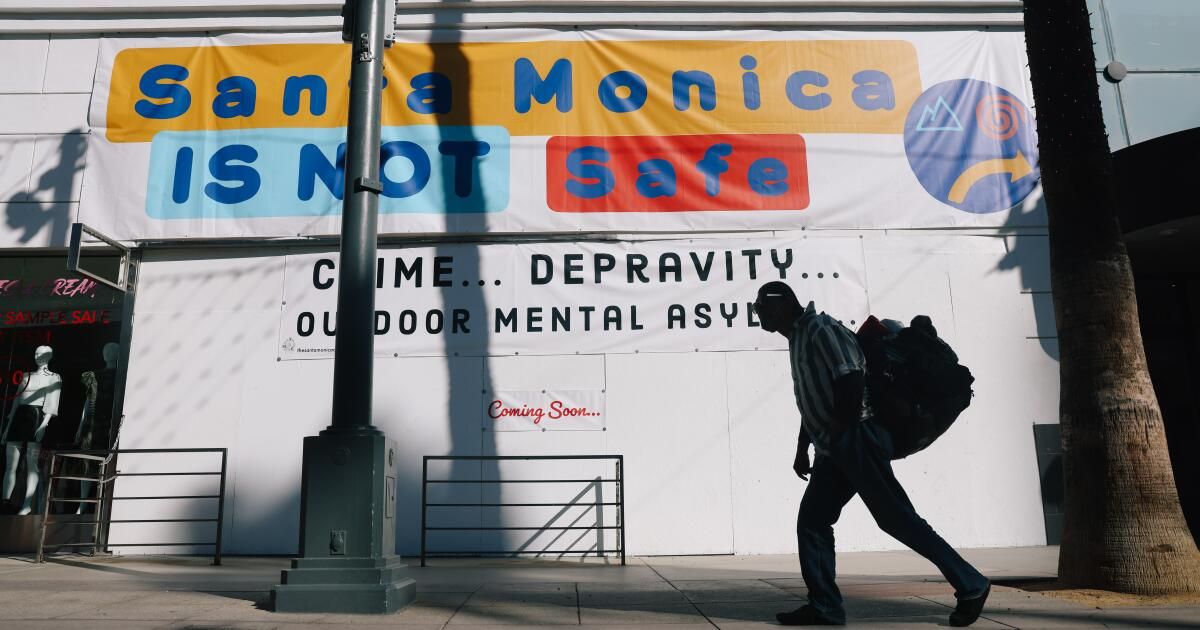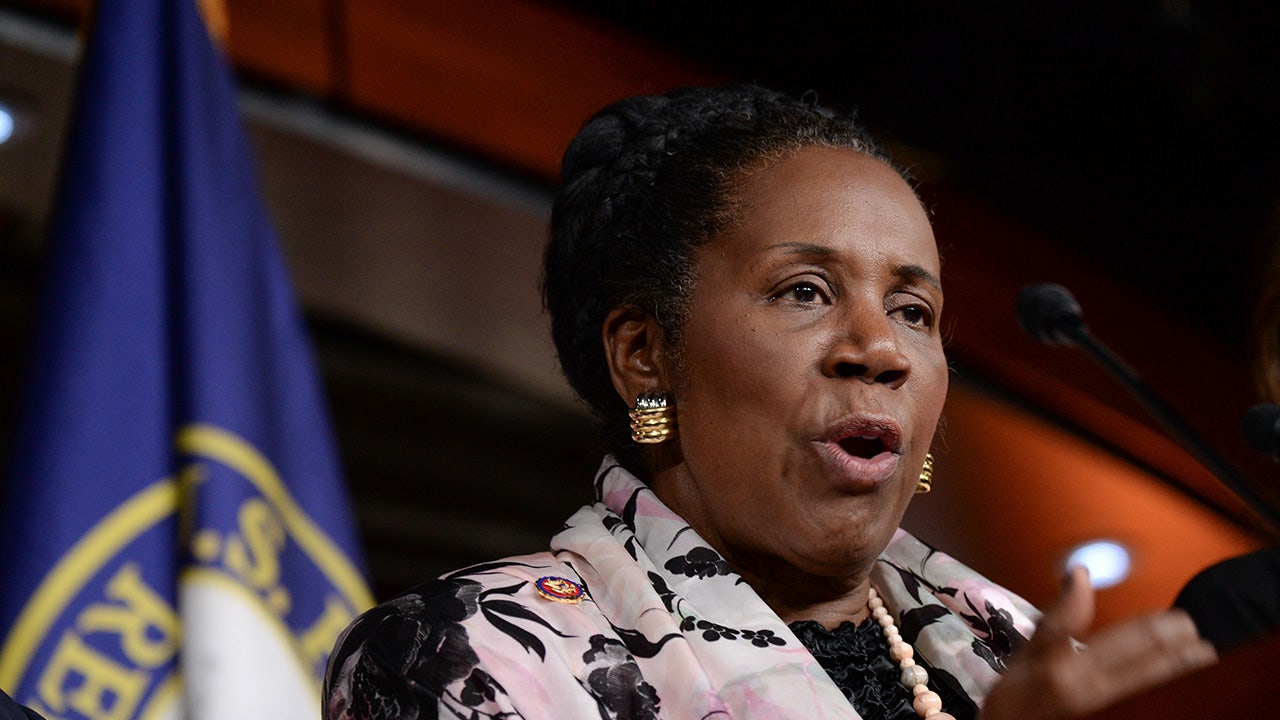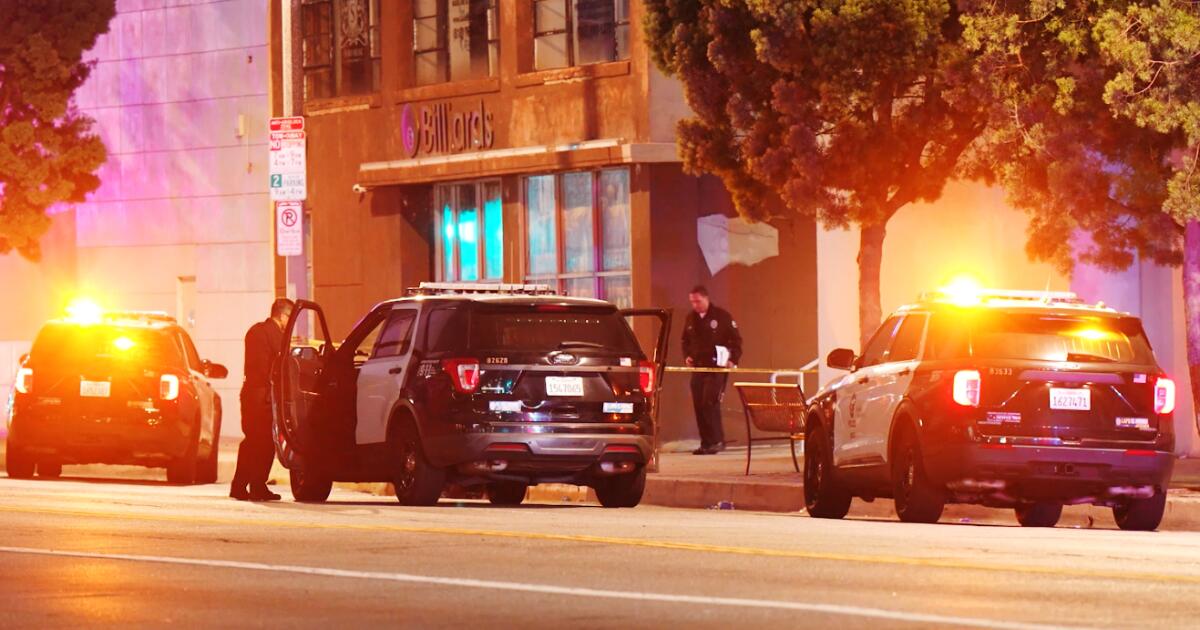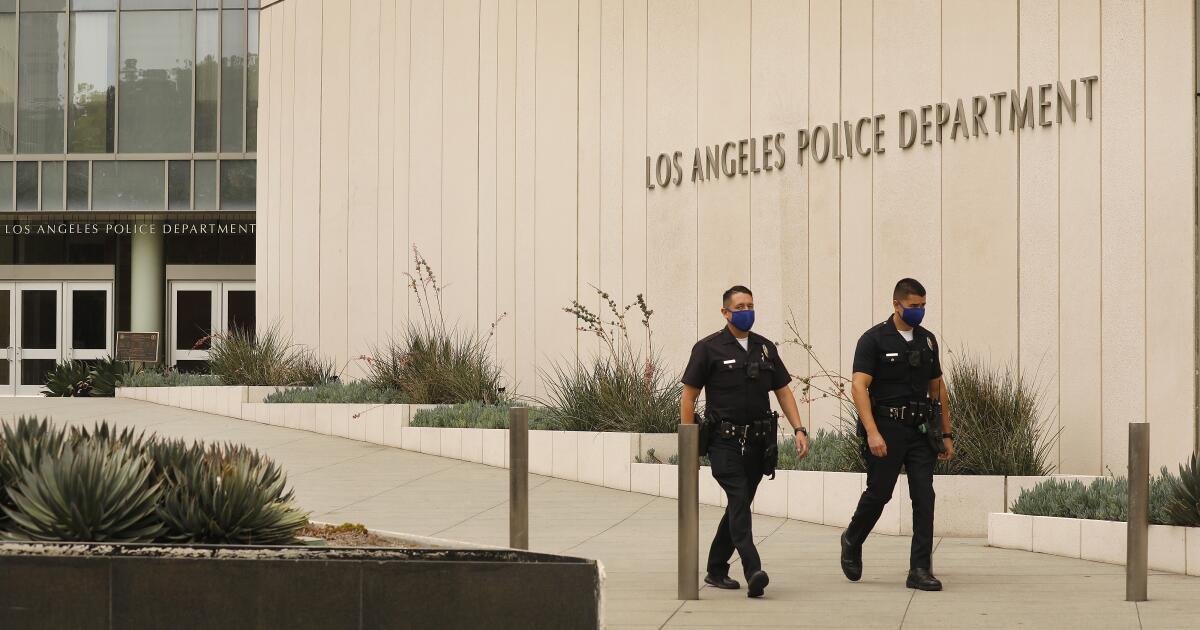Homeless people in Santa Monica may soon be banned from sleeping outdoors as the city considers changing its anti-camping ordinance to comply with a recent U.S. Supreme Court ruling on the contentious issue.
The current ordinance bans tents and makeshift shelters on public property. The revised ordinance would also prohibit unsheltered city residents from using blankets, pillows and sleeping bags while sleeping outdoors — exemptions that were added in 2022 to comply with an appeals court ruling.
Santa Monica officials were expected to discuss the proposed ordinance along with other recommendations during Tuesday night's City Council meeting, but officials tabled the item to be discussed possibly as early as next week.
Homeless people have long been drawn to Santa Monica, particularly its boardwalk and beaches, where tourists congregate. They have been blamed for several crimes that have made headlines.
Last summer, a man who appeared to be homeless attacked Mayor Phil Brock on the Third Street Promenade. Brock was a council member at the time of the attack. Last May, a homeless man attacked three people on the same street and stabbed at least two German tourists. The following month, Santa Monica police arrested a homeless man who attacked three people on the beach, including an elderly woman and a 17-year-old girl.
According to the city’s recent homeless count, there are 774 homeless people in Santa Monica, a 6% decrease from 826 in 2023. At least 62% of the homeless population lives outdoors.
The proposed ordinance on Tuesday drew dozens of residents to the Santa Monica council chambers, some of whom addressed the issue at the start of the meeting.
Resident Wade Kelly told the council during public comment that he disagreed with the city's plan to ban people from sleeping outdoors and addressed the mayor directly about it.
“You don't stand up for human rights,” Kelly told him.
Brock did not hesitate to respond to his comments.
“I am indebted to my residents, I am indebted to our business interests and I am indebted to the people who need compassion on our street,” he said. “The question is, is it [it] “The compassion that allows people to lie on our streets and die is a sign of negligence, not compassion.”
Some residents wrote to elected officials expressing their disapproval of the proposed ordinance, including resident Patricia Meyer.
“Denying a homeless person a blanket and an alternative place to sleep at the same time is petty and absurd,” he wrote.
Longtime resident Kathleen Sheldon also wrote to officials saying that stopping people from sleeping rough would not make the homeless problem go away.
“It will simply expose desperate people with nowhere else to go to even more inhumane conditions, further endangering their health and safety and quite possibly their lives,” he wrote. “Please do not give in to the loudest and most hateful voices in our community. Instead, withdraw these cruel and counterproductive proposals and do what is best for our city.”
The proposed ordinance up for consideration Tuesday night stems from a July City Council meeting in which Mayor Pro Tem Lana Negrete and Councilman Oscar de la Torre asked city staff to “evaluate and provide options for amending the city’s municipal code” to comply with the recent U.S. Supreme Court ruling.
In June, the country's Supreme Court overturned a ruling by the US Circuit 9 Court of Appeals, known as the Grant Pass decisionThat ruling said ordinances allowing camping and sleeping violated the Eighth Amendment by constituting cruel and unusual punishment for people who had nowhere else to go.
The Supreme Court ruling overturning the Grant Pass decision meant that cities and counties were free to prohibit people from sleeping or camping on public property, even if there was nowhere available to go.
Shortly after that decision, Gov. Gavin Newsom ordered state agencies to begin clearing homeless encampments from state lands; he urged cities and counties to do the same and threatened to take away money from cities and counties that did not make progress in clearing homeless encampments.
Last week, the city of Long Beach began enforcing their anti-camping laws Authorities have also sought to clear out homeless encampments that posed a threat to public health and safety and prevented people from accessing libraries, parks and beaches. Authorities have also targeted encampments where people had resisted receiving services.
In Los Angeles, elected officials said the governor's order did not change anything in their approach to clearing the encampments.
While it’s unclear what elected officials in Santa Monica plan to do, city staff have also provided them with other recommendations, including not taking any action. The city’s anti-camping law currently bans tents and makeshift shelters on public property, but allows people to use blankets and pillows while sleeping.
Staff also recommended that the city could wait and watch how other cities address homeless encampments amid the Supreme Court ruling.
Tuesday’s controversial proposal also came the same night that city officials were considering purchasing a commercial building in the 1400 block of Wilshire Boulevard for use in a permanent supportive housing project.
Many residents living around the proposed site spoke out against the project, saying it would make their neighborhood more dangerous and less attractive to shoppers, while hurting businesses.
“We need to do something to help the homeless,” Mary Stewart, an apartment owner, told the council. “This won’t really do much, it will just substantially damage the neighborhood for no benefit to anyone.”
She and many other residents said they would support the project as long as the tenants were low-income seniors.
George Guttman echoed that sentiment, but also made an additional suggestion to city leaders.
“If we are going to build low-income housing, hopefully we can house families there so they can attend our excellent school system.”












